Best Dream Interpretation Books

Did you wake up this morning in awe of the *slightly naughty* dream you had last night? Or maybe there’s a vivid dream from your early childhood you’ve been trying to piece together all these years? I know! You’re wondering why the heck you dreamt about pirates and hamburgers last night.
| Rank | Books | Author |
| #1 | 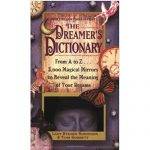 The Dreamer’s Dictionary The Dreamer’s Dictionary
| Author: Stearn Robinson and Tom Corbett |
| #2 | 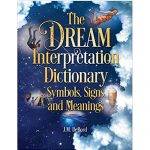 The Dream Interpretation Dictionary: Symbols, Signs, and Meanings The Dream Interpretation Dictionary: Symbols, Signs, and Meanings
| Author: J.M. DeBord |
| #3 | 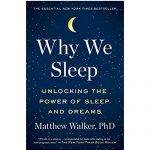 Why We Sleep: Unlocking the Power of Sleep and Dreams Why We Sleep: Unlocking the Power of Sleep and Dreams
| Author: Matthew Walker, PhD |
| #4 | 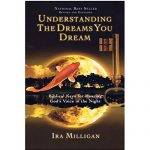 Understanding the Dreams You Dream (Revised and Expanded) Understanding the Dreams You Dream (Revised and Expanded)
| Author: Ira Milligan |
| #5 | 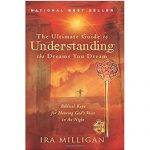 The Ultimate Guide to Understanding the Dreams You Dream The Ultimate Guide to Understanding the Dreams You Dream
| Author: Ira Milligan |
While dream interpretation gets kind of a bad rap in today’s modernized, science-driven world, putting in the effort to think about and analyze your dreams can actually be good for you! (More on this later.) Depending on who you ask, our dreams could 1) be simple cognitive processes, 2) hold hidden meanings that reveal more about ourselves, or even 3) serve as messages from God, another deity, or even a deceased loved one.
Whatever your beliefs or your reasons for wanting to delve deeper into your dreams, our list of the best dream interpretation books has a resource with your name on it. Keep reading for additional information on dream interpretation, how to start your own dream journal, and of course, our list of the top resources.
Some Additional Notes on Dream Interpretation
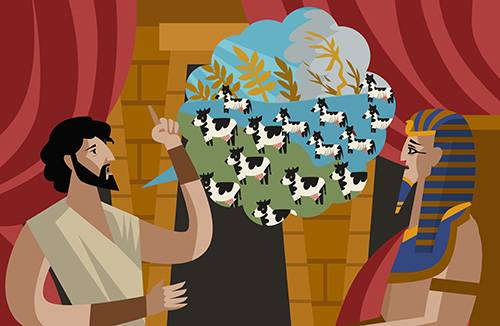
Dream interpretation may date farther back than 3100 BC, spanning across several eras and geographic zones. From the ancient Sumerians, Greeks, and Egyptians to modern Europe, dreams have been considered a crucial element of life. In fact, many great leaders have used dreams as a source of guidance and wisdom.
It was in the late 19th and early 20th centuries that dream interpretation became particularly popular in Europe. The year 1899 saw the publishing of Sigmund Freud’s The Interpretation of Dreams, a book which spearheaded much of what we know and believe about dreams today—and which inspired the renowned Carl Jung to further explore and analyze dreams and their meanings. Dream interpretation really boomed starting in the 1970s, when Ann Farady published a DIY dream interpretation book geared toward the general population.
Even today, sleep and dream research are ongoing; there’s a number of neuroscientists who have dedicated their studies to this very topic. There’s still a lot we don’t quite understand…but that only means there’s still a lot to be discovered!
You might want to read also: Best Dream Journal
Tips for Dream Journaling
Dream journaling is an excellent way to remember and analyze your dreams. Just as other types of journaling allow you to put your thoughts and feelings on paper, so does dream journaling allow you to jot down the manifestations of your unconscious thoughts and feelings. Here are some tips to get your started:
• Get serious about it
As with most things in life, dream journaling requires a certain level of dedication in order to be beneficial. Make sure that dream journaling is something you actually want to start doing, and then…do it!
• Keep your journal nearby

The best way to ensure you’ll continue with your dream journaling is to keep your journal (and a writing utensil) close to where you sleep, like on your bedside table. This will allow you to quickly reach for it upon waking up, so that you’re less likely to forget the dream before writing it down. In addition, seeing the dream journal each night before going to bed may inspire you to both remember your dream and record it.
• Include as many details as you can
Whether your dream was mild or vivid, it’s important to record as many details as you can remember. It’s these details that make a dream feel real, and depending on which dream theory you most gravitate toward, they can be symbolic of key things going on in your life or within your unconscious self. Try to record the scenery, characters, objects, sounds, and even feelings you experienced.

• Consider various methods of dream journaling
Writing is the most popular form of journaling in general, but each person is different and you may find that an alternative method of dream journaling works better for you. You could dabble in a variety of methods, such as drawing scenes from the dream or conveying your dream experiences through an art form (such as a poem, sculpture, or slideshow). Of course, using a combination of methods is always an option!
• Look for patterns
This could be patterns within a single dream or patterns you notice across a series of dreams. For example, if you notice that a specific feeling or location is present in several of your recent dreams, this might be an indicator that it represents something important.
• Compare the dream to real life
This leads us to the final step: comparing the dream to real life. While not every dream is going to have obvious correlations with your daily life, there’s a good chance that some of them will. Look at parts of your dream that really stood out to you—can you think of a logical reason for why you dreamt that or why it affected you so?
Should You Use a Dream Interpretation Book?
Dream interpretation books are not for everyone. There are plenty of people who would rather interpret their dreams themselves, and still, plenty of others who are skeptical of dream interpretation in and of itself. So, should you use a dream interpretation book to analyze your own dreams?
There are certainly pros and cons involved, and the answer will largely depend on what your goals and beliefs are.
| Pros | Cons |
|
|
That said, a dream interpretation book might be a great purchase if you want to:
- find new ways to analyze symbols.
- better understand yourself.
- just have a little creative fun.
The Best Dream Interpretation Books
Without further ado, here are our top dream interpretation book picks. Browse through them, scour other titles by these and similar authors, and take that first step toward more guided dream interpretation.
1. The Dreamer’s Dictionary
Author: Stearn Robinson and Tom Corbett
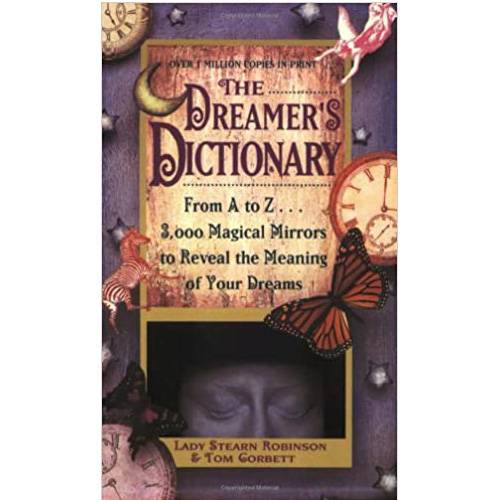
The Dreamer’s Dictionary is the perfect book for anyone who wants a quick reference always at their fingertips. Rather than diving deep into the nuances of every symbol, the authors of this book took a dictionary-style approach to dream interpretation: Alphabetically search for a symbol from your dream, find the listing, and get a short description of what it probably means. The book was compiled after several years of research, and it takes both modern and ancient beliefs about dreams into consideration. You’d be hard-pressed to find a more concise, convenient dream interpretation book!
2. The Dream Interpretation Dictionary: Symbols, Signs, and Meanings
Author: J.M. DeBord
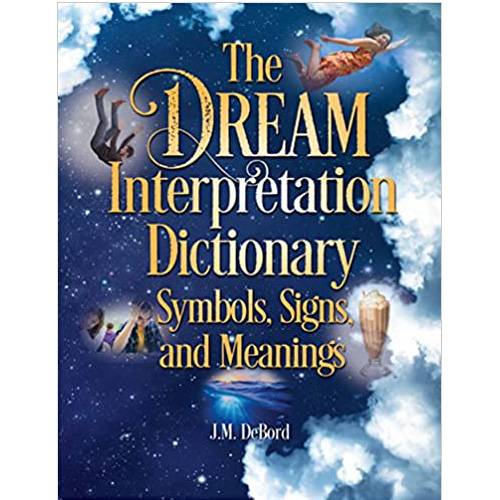
The Dream Interpretation Dictionary: Symbols, Signs, and Meanings is another “quick reference” book. However, this one goes a bit deeper than the previous one as it offers additional insight into how the context of one’s dream can affect the symbolic meanings. There are thousands of entries, and these include not only the more common symbols (such as falling) but also more contemporary ones (such as Facebook) as well as secondary symbols. This is a great dream interpretation book for those who want both convenience and in-depth analyses.
3. Why We Sleep: Unlocking the Power of Sleep and Dreams
Author: Matthew Walker, PhD
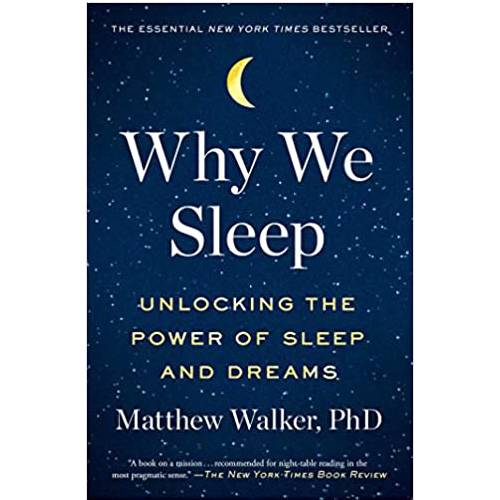
Why We Sleep: Unlocking the Power of Sleep and Dreams is an insightful book that discusses the different reasons we sleep, why sleep is beneficial for the brain and body, and where exactly dreams fall in the framework of sleep. While this is not a dream interpretation book per se, it does offer fascinating science-/research-based information on the mechanics behind sleep and the reasons we dream. This is the perfect book for those looking for a deep, factual read that’s easy to comprehend.
4. Understanding the Dreams You Dream (Revised and Expanded)
Author: Ira Milligan
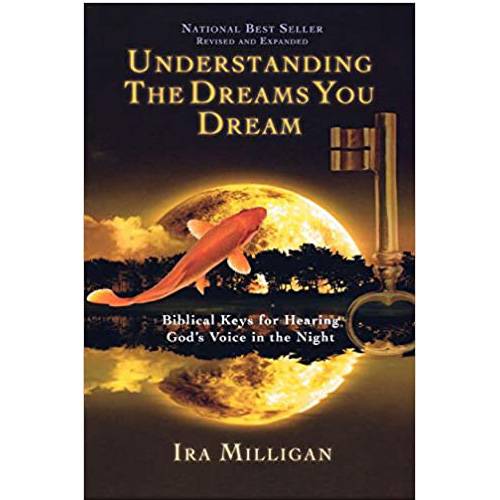
Understanding the Dreams You Dream (Revised and Expanded) is the go-to dream interpretation book for Christians looking to understand the meaning of their dreams from a biblical perspective. The book consists of two parts: 1) a discourse on biblical dream interpretation and meditation, and 2) a dictionary-style symbol guide. The author focuses on viewing dream symbols through the lenses of the Bible, weaving verses from Scripture as well as real-life interpretation examples into the text. This is the perfect book for anyone looking to deepen their spiritual life and walk with God through dream interpretation.
5. The Ultimate Guide to Understanding the Dreams You Dream
Author: Ira Milligan
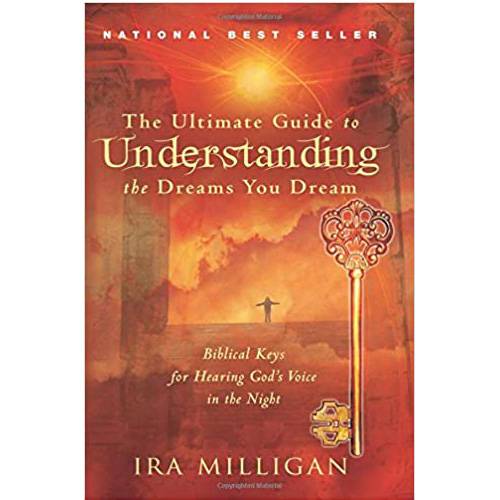
The Ultimate Guide to Understanding the Dreams You Dream is another entry by Ira Milligan presenting information on how to biblically interpret dreams. But this one is, well…ultimate. It contains nearly 150 more pages than the previous book and boasts a more comprehensive dictionary, while maintaining the same focus on biblical passages and meditation. This one is for those who are serious about diving deep into their dreams through the aid of Scripture.
You might be interested in: How Long Does It Take to Start Dreaming?
Conclusion
Learning how to interpret your dreams can have a profound impact on your daily life. While you can do this alone through use of a dream journal, some people find it beneficial to employ outside help via a dream interpretation book or website. We hope that our list of the best dream interpretation books has inspired you to pay greater attention to your inner world and that you have a better idea of what’s out there. So, make sure you get a good night’s sleep tonight and get ready to analyze the heck out of your next dream.
Frequently Asked Questions
The world of dream interpretation is vast and complex, so it’s understandable to have a few questions…
Is it good to remember dreams?
Remembering your dreams can have positive effects on your life in the waking world. Dreams are often viewed as a means for our brains to process information, make connections, and reveal more about ourselves. For these reasons, those who remember their dreams may gain more problem-solving capabilities and feel more in-tune with themselves. Additionally, remembering one’s dreams is often associated with a greater level of creativity.
That said, people tend to remember their dreams with varying regularity—and some people never remember them! Our dream memories tend to fade as we exit REM sleep, especially if we’re awakened by an alarm clock or leave bed in a rush.
So, while remembering dreams can be beneficial, it isn’t necessary for living a satisfactory life.
What are the popular types of dream interpretation?
You might be interested also in: Modern Dreamscape
There are quite a few dream interpretation methods out there, but four schools of thought really stand out. These are the ideas put forth by:
- Freud
- Jung
- Hall
- Domhoff
Below is a quick overview of how each individual viewed dreams.
— Freud
The core feature of Freud’s dream theory is that of wish fulfillment. He believed that the majority of dreams should be interpreted through the lens of one’s subconscious desires. Within this framework, there are two forms of “content”:
- Manifest: This is what you actually see, feel, or do within the dream.
- Latent: This is what the manifest content represents or means.
In other words, the manifest content is composed of mere symbols, while the latent content is what you find upon interpreting (adding meaning to) the dream.
— Jung
Carl Jung was largely inspired by Freud and his works—in fact, the two frequently corresponded and met with each other. The dream theories of Jung expand upon (and deviate slightly from) those of Freud, with Jung tending to focus more on the entire unconscious self than on wish fulfillment.
He believed that dreams serve the purpose of allowing an individual to compensate for parts of their psyche that at underdeveloped. Rather than each symbol in a dream corresponding exactly to a single meaning or interpretation for everyone (e.g., Symbol = X), their meanings can differ from one person or context to another (e.g., Symbol ≈ X or Y or Z, etc.).
— Hall
Hall viewed dreaming as a mere cognitive process, rather than something with innate meaning or purpose. He believed that dreams are often a display of how we perceive and view the world around us, especially when it comes to things in our personal lives. His focus was understanding the dreamer, not the dream.
— Domhoff
Domhoff has proposed similar views as Hall, believing the act of dreaming to be a mere cognitive process. According to his theory, our dreams represent our thoughts and concerns regarding our waking life.
Are dream interpretations real?
When you “interpret” a dream, what you’re really doing is attributing meaning to it. You might do this by:
- utilizing one of the theories mentioned above.
- asking a family member or loved one what they think.
- praying about it.
- reading a dream interpretation book or seeking professional guidance.
- reflecting on that dream yourself.
Because there are so many different ways to “interpret” a dream—and because dreams (and dreamers themselves) are so diverse and complex—there’s no single way to correctly interpret a given dream. In a way, dreams are like masterful pieces of art: Open to interpretation by others, but best interpreted by their creator (in this case, the dreamer).
In short: Dream interpretation is as real as you want it to be.
Do dreams actually mean anything?
This really depends on who you ask!
As mentioned earlier, dream interpretation is the act of attributing meaning to a dream. This definition implies that there is no innate meaning to begin with, but that we can add meaning.
Oftentimes, our dreams will reflect our inner thoughts and feelings; this can be obvious in some cases and ambiguous in others. And of course, we also have dreams that seem to have no connection whatsoever to our personal lives.
I think it’s safe to say that some dreams correlate more closely with our lives than others. While any dream can be given meaning, not all dreams have a single meaning of their own.
Photo credit: Studio Light and Shade/Shutterstock; ifeking/Shutterstock
